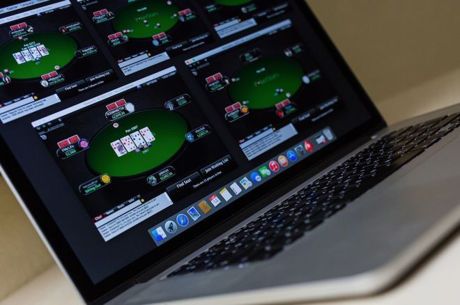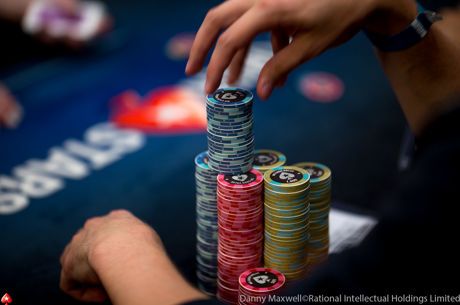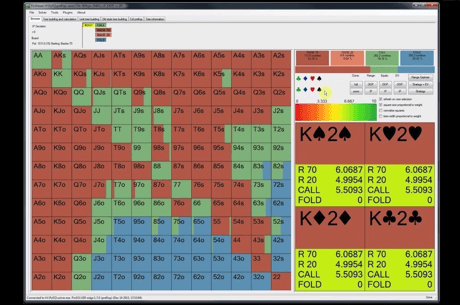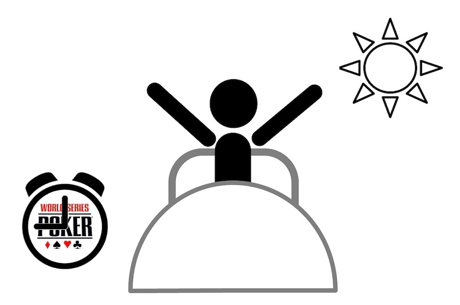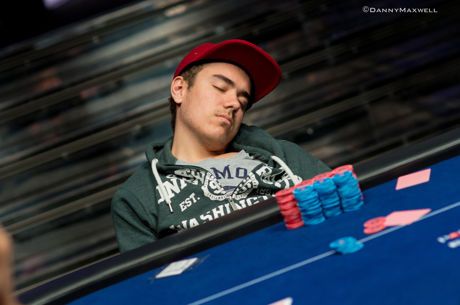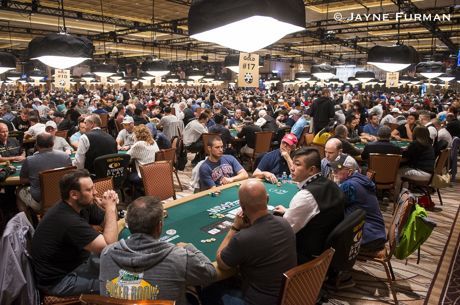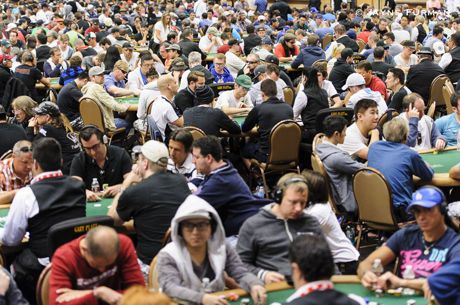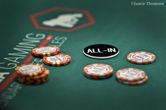Sam Greenwood Breaks Down Creative Play by Stephen Chidwick from SHRB London
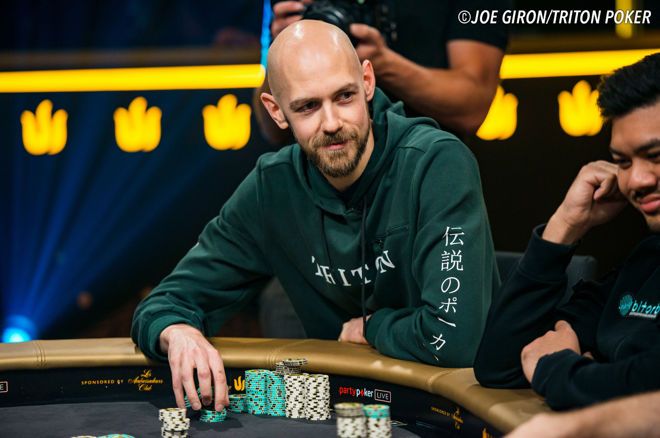
Table Of Contents
High-roller poker tournaments have come under some criticism of late as poker fans sometimes find the high-level play of the day to be slow, methodical, and in many cases boring to watch.
"The idea that the play is robotic or boring is insane to me. I've been playing poker for 15 years and it's never been played at a higher level."
Not everyone agrees. Erik Seidel and Sam Greenwood, two of the best in the game, sparked a Twitter thread over the weekend debunking the idea that high-roller tournament poker is boring and robotic.
Specifically, they brought up Stephen Chidwick's play during the recently concluded Super High Roller Bowl London as a prime example of the nuance and creativity being exhibited at the highest levels of the game today.
Greenwood kicked the conversation off.
A quick strategy thread about this (accurate) tweet. There's an idea top pros are turning poker into a programatic… https://t.co/jOMq6zCqyz
— Sam Greenwood (@SamGreenwoodRIO)
Greenwood follows up with an interesting hand history and analysis that demonstrates live poker strategy nuance that transcends mechanical solvers.
An Unexpected River Check-Raise
With four players left and only two getting paid, Christoph Vogelsang opened with A♦5♠ and Chidwick defended the big blind with a call holding A♣2♦.
Chidwick then check-called both the 3♦2♣J♥ flop and the Q♦ turn before putting in a check-raise for most of his stack on the 10♦ river, causing Vogelsang to let his hand go. You can watch the hand play out in the clip posted via PokerGO below.
Greenwood Breaks it Down
Greenwood broke down just what made the hand so interesting, with many of the moves going against what solvers might spit out.
My instinct was that under CEV* this is not a solver approved hand. I ran a quick PIO sim* and it confirmed my instincts. PIO wants Cristoph to bet bigger otr* and wants Stevie to fold vs a big bet. If you force Cristoph to bet smaller Stevie rarely bluffs this combo.
So where does this leave us. Did they both misplay the hand? Did one of them have a live read? Was one of them making an exploitative counter adjustment? Were they both consciously adjusting from CEV in a tournament with an unusual payout structure?
Unless you're Stevie/Cristoph you'll never know. Anytime PIO mixes strategies you're indifferent between your options, however vs specific opponents with a specific hand at a specific time there's likely a dominant strategy.
The best players are the ones who know what one's frequencies should be, but also tune their mixes exploitatively when they conclude playing a GT* mix isn't necessary.
If you find the aesethics of SHR poker to be boring. That's fine, but the idea that the play is robotic or boring is insane to me. I've been playing poker for 15 years and it's never been played at a higher level.
*PIO sim = simulation run on popular software PioSOLVER
CEV = Chip Expected Value
otr = on the river
GT = Game Theory
In the hand that followed, which you can also watch in the above video, Chidwick makes a non-standard overbet on the flop that folds out Vogelsang's open-ended straight draw and backdoor flush-draw equity. As PokerGO noted, the two consecutive hands left the commentators speechless.
Katz Agrees
Still largely considered a "recreational" player, Cary Katz has been proving that he can hang with the best, and his genuine humor and frequent table-talk make for entertaining poker when he's in the game. Recently Katz was the last player standing in the Super High Roller Bowl London event, having to outlast Greenwood, David Peters, Mikita Badziakouski, Chidwick, Vogelsang, and eventually, Ali Imsirovic heads-up to lift the trophy.
The PokerCentral founder admitted after the victory he wasn't the most deserving in terms of level of play on the final day, instead giving the nod to Chidwick and others.
"I think Stevie really deserved to win; he played absolutely perfect but he just kept losing all the races," Katz told PokerCentral tournament reporters after the win. "Vogelsang also played terrific and Ali played unreal, so I think I played by far the worst today but I just got the luckiest. But I'll take it."
Are You Not Entertained?
Many on Twitter and elsewhere appreciated Chidwick's and other players' high-level, creative moves but some casual fans still launched complaints about the slow pace of play that often characterizes high-roller events. This element seems to be changing, however, with the increasingly commonplace use of shot clocks and time bank cards in the higher buy-in tournaments, just as the SHRB had.
As for whether or not high rollers playing for hundreds of thousands of dollars should be putting out extra effort to entertain those at home, it may just be a matter of perspective. As Joey Ingram put it: "The community has somehow become one that insults the idea of trying to be the best in the world due to lack of emotion shown by those striving for it. Showmanship is an important part of other games so I can understand it."
Not all will find watching high-roller poker tournaments the most entertaining thing on TV. But for inquiring poker minds, it might just be one of the easiest (and cheapest) ways to gain insight into the strategies employed by the best of the best in the game.

